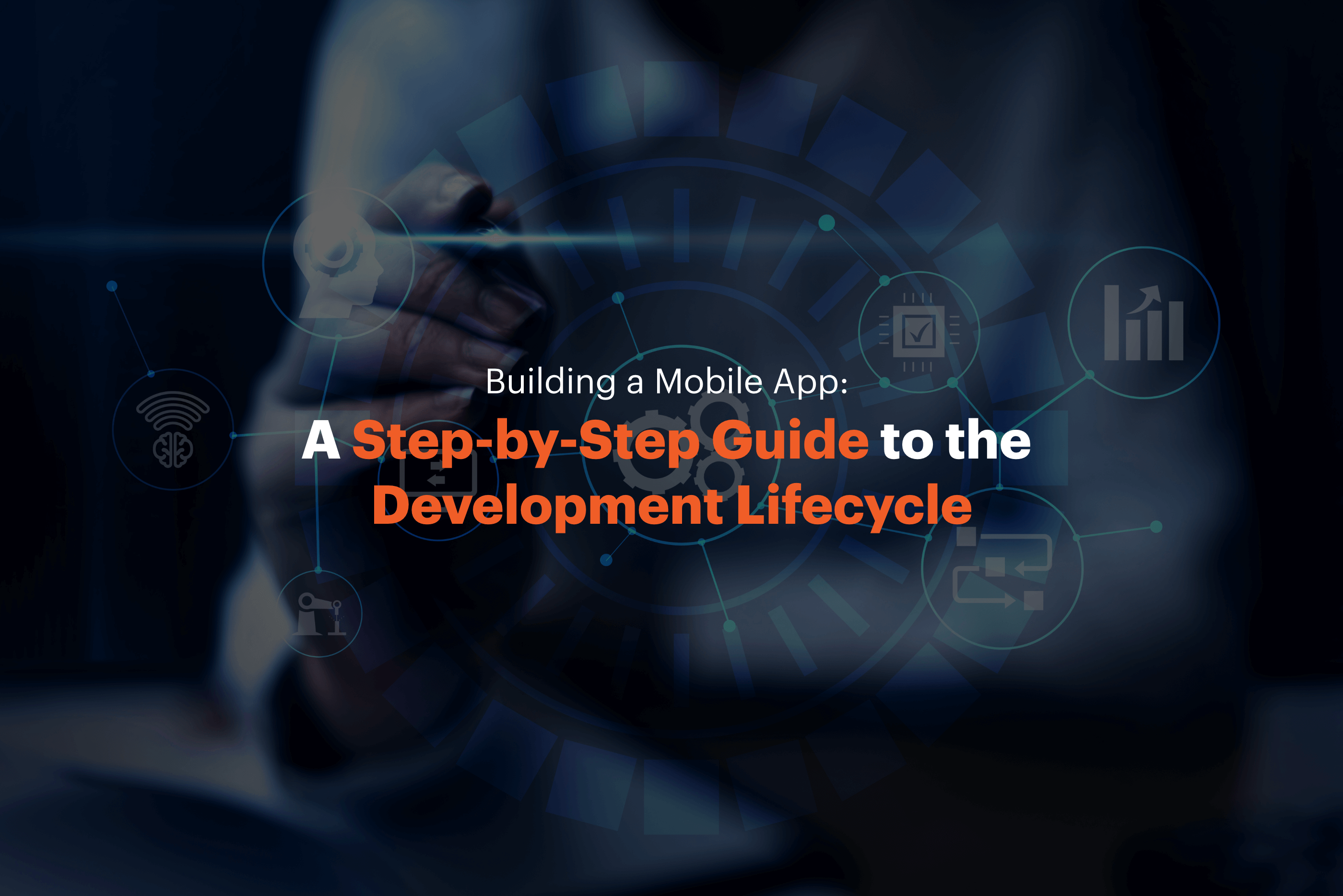Contact Us
If you have made it this far, you are here with a reason. You need our help! We are super friendly and genuinely care to help you succeed.
Enquire today to receive a FREE consultation with an App Guru.
Get in Touch
info [at] appgurus.com.au
The mobile app industry is rapidly growing, and businesses of all sizes want to create innovative and engaging apps that can provide value to their users. However, building a mobile app is complex and requires careful planning and execution. To create a successful app, it is essential to follow a well-defined development lifecycle that ensures that the app meets the requirements and expectations of its users.
This blog post will provide a comprehensive guide to the mobile app development lifecycle, covering the nine essential stages developers need to follow to build a successful app. From ideation to marketing, we will cover each stage in detail, providing tips and best practices to help developers create high-quality, user-friendly apps that stand out in the crowded app market. Whether you are a seasoned developer or just starting, this guide will provide the knowledge and insights you need to build a successful mobile app.
1. Ideation:
Ideation is a critical part of the mobile app development lifecycle. It is the process of generating and refining app ideas that meet the target audience's needs. In the ideation stage, you identify the problem your app will solve and develop a solution that provides value to your users.
Importance of Ideation in Mobile App Development
The ideation stage is essential for the success of your mobile app. It lays the foundation for the entire development process and helps you create an app that meets the needs of your target audience. Here are some reasons why ideation is crucial in mobile app development.
Identifies User Needs: The ideation stage helps you identify the needs of your target audience and develop an app that solves their pain points effectively.
Provides a Unique Value Proposition: Ideation helps you create a unique value proposition that differentiates your app from the competition and provides a compelling reason for users to download and use your app.
Reduces Development Costs: Ideation helps you refine your app idea and identify potential challenges before you start the development process, reducing development costs and timelines.
Improves User Experience: A well-ideated app is more likely to provide a better user experience, increasing user engagement and retention.
Generating and Refining App Ideas
Generating and refining app ideas is a challenging process that requires creativity and strategic thinking. Here are some steps you can follow to create and refine app ideas:
Conduct Market Research: Conduct market research to identify gaps in the market and determine the needs and preferences of your target audience. This will help you generate app ideas that meet the needs of your users effectively.
Brainstorming: Gather your development team and brainstorm potential app ideas. Encourage your team to think outside the box and come up with creative solutions to the problems identified during market research.
Evaluate App Ideas: Evaluate the app ideas generated during brainstorming sessions based on their feasibility, market demand, and unique value proposition. Then, refine the app ideas to ensure that they effectively meet your target audience's needs.
Create a Prototype: Create a prototype of your app idea to establish a clearly defined product. This will ensure your vision is met and that extensive thought has gone into how the app will be used by the target audience.
Validate Your App Idea: Validate your app idea by conducting surveys, focus groups, and market research to determine its market potential and user demand. Look at your market potential based on the population of your prospective target audience. This will help you make informed decisions about whether to proceed with app development. A great product is important, but don’t forget that a compound marketing strategy is the key to success of any app platform.
2. Market Research
Market research is a vital component of the mobile app development lifecycle. It is the process of gathering and analyzing information about the target market to determine the needs and preferences of potential users. Conducting market research helps app developers make informed decisions about the features, design, and overall direction of their mobile app.
Importance of Market Research in Mobile App Development
Market research helps app developers gain valuable insights into the market and target audience, including their needs, preferences, and pain points. This information is crucial in designing an app that meets the needs of its intended audience and stands out from the competition.
3. Planning
Planning is a crucial stage in the mobile app development lifecycle. It involves outlining the goals and objectives of the app, determining the target audience, and defining the scope and features of the app. The planning stage helps app developers create a roadmap for the development process, identify potential challenges, and allocate resources effectively. Effective planning can help app developers save time and reduce costs during the development process. In short, planning sets the foundation for the entire mobile app development process and ensures that the app meets the needs of its intended audience.
4. Design
Design plays a critical role in the mobile app development lifecycle. It is the foundation upon which the entire app is built. The design phase typically involves creating wireframes, mockups, and prototypes that define the app's visual style, layout, and user interface. During this phase, designers work closely with developers to ensure the app's design is technically feasible and aligned with the project's goals. Once the design is finalized, it becomes the blueprint for the app's development, testing, and deployment. A well-designed app can enhance the user experience, increase engagement, and drive user retention, making design an essential aspect of mobile app development.
5. Development
Development is one of the critical phases in the mobile app development lifecycle. It involves writing code, integrating features, and building the app's functionality based on the approved design. During this phase, developers use programming languages, tools, and frameworks to make the app's architecture and features. They also ensure the app is scalable, secure, and optimized for performance across multiple devices and platforms.
The development phase is iterative and requires collaboration between designers, developers, and project managers to ensure that the app meets the project's goals and requirements. It involves testing, debugging, and refining the app's code to ensure it is stable and bug-free.
The mobile app development landscape is constantly evolving. Developers must stay updated with the latest trends, technologies, and best practices to deliver high-quality apps that meet user expectations. With the increasing demand for mobile apps across various industries, the development phase has become more critical than ever, and a well-executed development process can significantly impact the success of an app.
6. Testing
Testing is an essential phase in the mobile app development lifecycle. It involves verifying that the app meets the project's requirements, functions as intended, and is free of bugs and errors. In addition, the testing phase ensures that the app is of high quality, meets user expectations, and provides a positive user experience.
During the testing phase, testers perform various types of tests, including functional, usability, performance, and security. In addition, they use tools and techniques to identify and fix bugs and ensure the app is compatible with different devices and platforms.
Testing is an iterative process, and developers work closely with testers to identify and resolve issues quickly. Testing also ensures the app meets industry standards and regulations, such as data privacy laws.
A well-executed testing phase can significantly impact the success of an app, as it helps identify and fix issues before the app is released to users. It also helps build trust and confidence in the app, increasing user satisfaction and retention.
7. Deployment
Deployment is the final phase in the mobile app development lifecycle, where the app is released to users. During this phase, developers ensure that the app is packaged and optimized for distribution through app stores. They also ensure that the app meets the requirements of different platforms and devices.
Before deploying the app, developers perform a final round of testing to ensure that the app is bug-free and meets user expectations. Once approved, the app is submitted to app stores.
The deployment also involves monitoring and maintaining the app after release to ensure it continues functioning as intended and meets user needs. In addition, developers may release updates and patches to address issues and introduce new features and functionality.
The deployment phase is critical to the success of an app, as it determines how well users will receive the app. A well-executed deployment ensures that the app is accessible and functional, building trust and confidence in the app and increasing user satisfaction and retention.
8. Maintenance
Maintenance is an ongoing phase in the mobile app development lifecycle that follows the deployment phase. It involves monitoring and improving the app's performance, fixing bugs and errors, and updating the app's features and functionality to meet changing user needs and expectations.
During maintenance, developers may release updates and patches to address security vulnerabilities and compatibility issues or introduce new features and enhancements. Care also involves monitoring user feedback and reviews to identify improvement areas and address any problems that users may be experiencing.
Maintenance is essential for ensuring that the app remains relevant and helpful to users over time, building trust and loyalty among users, and ensuring the app's longevity. A well-executed maintenance phase can also help developers identify opportunities for innovation and growth, ensuring the app's continued success.
9. Marketing
Marketing is a crucial aspect of the mobile app development lifecycle that plays a significant role in promoting the app, increasing user acquisition, and driving user engagement. The marketing phase typically begins before the app is released and continues even after deployment.
During the marketing phase, developers work with marketers to develop a comprehensive strategy for app store optimization, social media marketing, influencer outreach, and paid advertising. The goal of marketing is to create awareness about the app, generate interest and excitement, and encourage users to download and use the app.
Marketers use various tactics, such as creating engaging content, targeted advertising, and leveraging social media influencers to reach a wider audience. They also monitor user engagement and feedback to identify improvement areas and develop strategies to increase user retention.
A well-executed marketing strategy can significantly impact the success of an app, as it helps increase visibility, build brand recognition, and drive user acquisition and engagement. It also allows developers to understand user needs and preferences, providing valuable insights for future app development.
Final Wording
Building a successful mobile app requires careful planning, execution, and a deep understanding of the target audience. By following the nine essential stages of the mobile app development lifecycle, developers can ensure that their app meets the needs and expectations of its users while also standing out in the crowded app market. From ideation to marketing, each stage is crucial for creating a high-quality, user-friendly app that can drive user engagement and loyalty.
However, the mobile app industry is constantly evolving, and developers must stay up-to-date with the latest trends and technologies to create innovative and engaging apps that can compete in the market. By continuously monitoring user feedback and adapting to changing market conditions, developers can build successful apps that meet the needs of their users and drive business growth. With careful planning, execution, and a focus on user needs, building a successful mobile app is not just possible - it can be a rewarding and fulfilling experience for developers and businesses alike.


